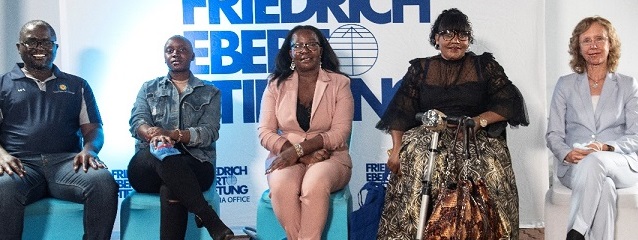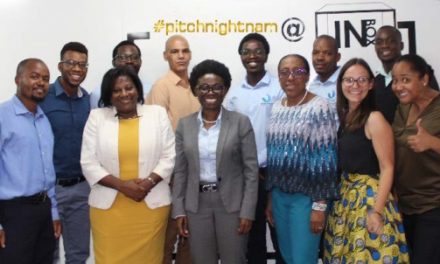
More comprehensive approach to gender issues needed – Friedrich Ebert

The Resident Representative of the Friedrich Ebert Stiftung (FES), Freya Gruenhagen said there is a need for a more comprehensive approach to gender issues in Namibia.
Gruenhagen said the approach calls for the freedom to choose different ways of being and living based on equal distribution of resources, equal possibilities to exert influence and equal respect regardless of gender.
The foundation on 24 February facilitated a vibrant public discussion unpacking the issues towards gender justice in Namibia with various stakeholders comprising of both government and civil society. The platform permitted all panellists to interact and democratically deliberate with one another which is a necessary condition for the emergence of social and gender justice.
Gender justice forms an integral part of all Friedrich Ebert activities as there cannot be social justice without gender justice. The FES Namibia Office has identified two major gender justice lines of work to be addressed in the following years: Equal access to public goods and meaningful representation.
The panellists were Alexia Manombe-Ncube, Deputy Minister in the Ministry of Gender Equality, Poverty Eradication and Child Welfare; Salatiel Shinedima, from Men, Engage Namibia Network; Ndiilokelwa Nthengwe, Intersectional Gender Justice Author and Advocate; and Ivonne Kaukuetu, Technical Advisor in the Ministry of Gender Equality, Poverty Eradication and Child Welfare.
On the issue of toxic masculinity Shinedima detailed that this aims at stressing how a certain socially constructed definition of masculinity can be harmful to society, women and men themselves. Toxic masculinity is not just perpetuated by men, but by society as well, he said.
Touching on the perspectives of LGBTIQ+ communities, gender justice advocate Nthengwe highlighted that the term gender justice best signifies the intersectional approach that centres on the diverse needs, experiences and leadership of people most impacted by discrimination and oppression. Nthengwe said this approach helps to achieve both equity and equal distribution of resources, access and opportunities and equality which looks into equal outcomes for all.
On the issue of equal access to social protection as a public good, Kaukuetu indicated that the government continues to strive towards the provision of equal access to social protection through a range of instruments such as information policies and public awareness campaigns are conducted to inform the citizenry on available social protection.
On the topic of manifestations of multiple forms of discrimination against people with disabilities, deputy minister Manombe-Ncube called for inclusion in all sectors as she indicated that educated and working adults with disabilities face discrimination daily and are often not appointed to positions of power since their disability is considered inability. She further urged people to acquaint themselves with the Human Rights Agenda which envisages a world of universal respect for human rights and human dignity.











































